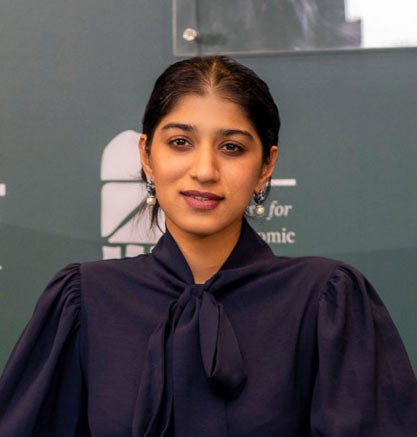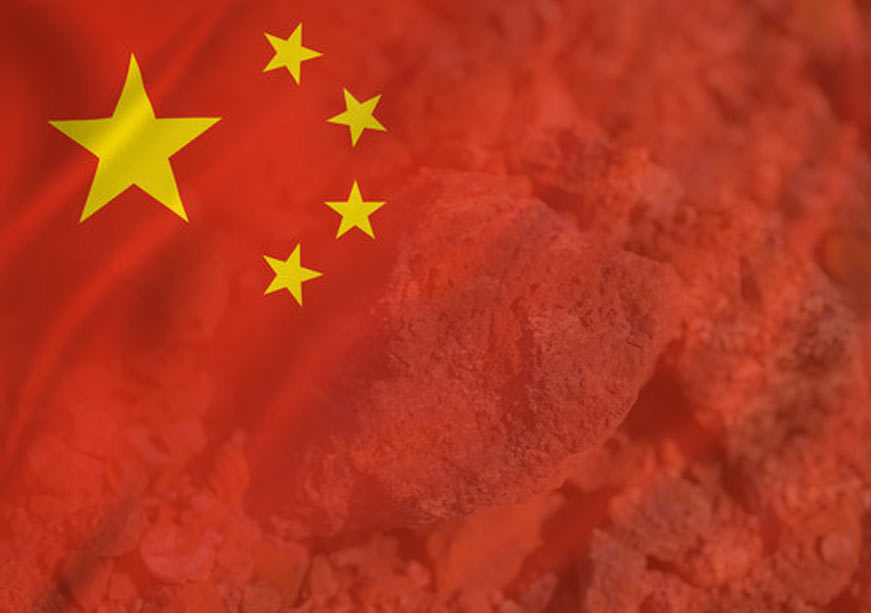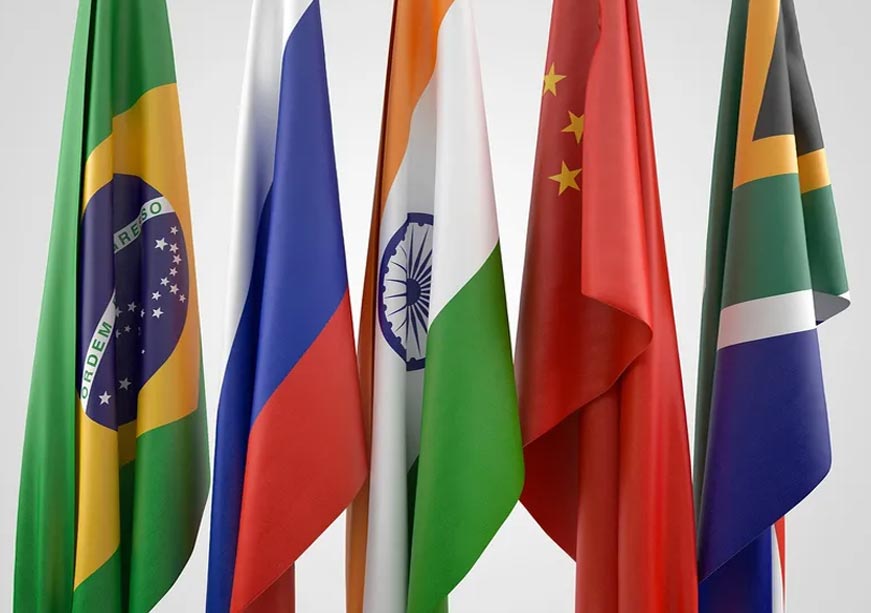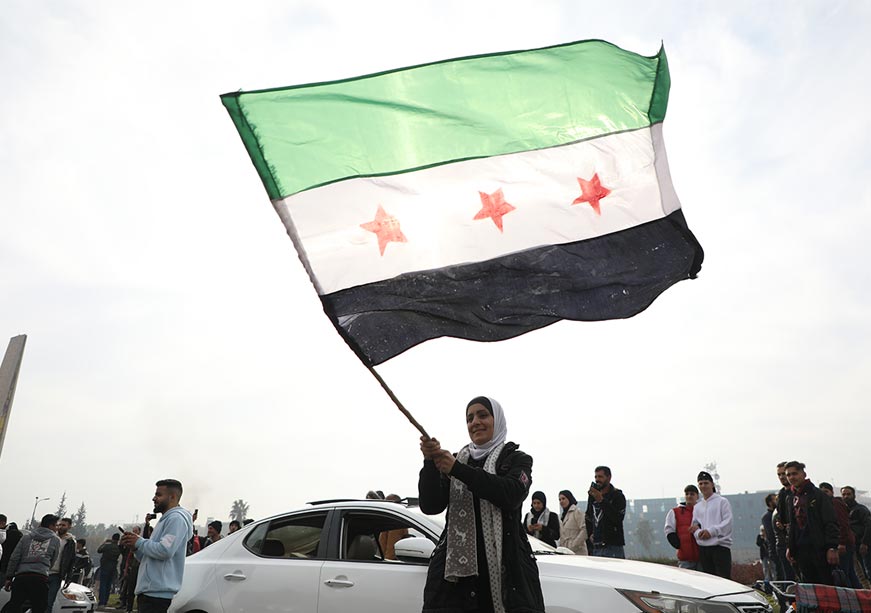On 13 June 2025, the long-simmering tensions between Israel and Iran erupted into direct, overt conflict. Israel’s large-scale air strikes targeting Iran’s nuclear and military infrastructure prompted Tehran to retaliate with ballistic missiles and drones. This escalation has shattered the region’s fragile security architecture and has reignited open confrontation in the Middle East. The immediate aftermath has sent shockwaves across the globe, raising urgent questions about regional stability, global energy security, and the coherence of international alliances. As the world grapples with the fallout, the authors offer their initial analysis on the key aspects of this rapidly evolving crisis.
Energy Security as Risk: As Tensions Mount in the Strait of Hormuz
The Strait of Hormuz—a narrow yet strategic waterway between Iran and Oman—is responsible for almost one-fifth of the global crude oil trade. In 2022, the oil flow through the Strait averaged 21 million barrels per day. Key OPEC players from the region, including Saudi Arabia, Iraq, the United Arab Emirates, Kuwait as well as Iran, are heavily reliant on this chokepoint for their crude exports. Likewise, Qatar, as one of the largest liquefied natural gas (LNG) exporters, depends on the Strait for nearly all of its LNG shipments.
The significance of the Strait in ensuring global energy security is immense. This crucial reality offers a strong bargaining chip in the hands of the Iranians, who, in the past, have threatened to block the passage in response to the United States (US) and European sanctions back in 2012. The same threat now looms large as tensions escalate in the region.
Oil markets have sharply reacted to the unfolding events. Crude prices have risen by nearly 12 percent since the military attack. While the Bahrain-based US Fifth Fleet does provide some maritime security, commercial shipping remains wary of operating in contentious regions. The United Kingdom (UK) and Greece authorities have advised their ships to avoid the southern Red Sea and the Gulf of Aden in anticipation of further escalation. A full or even partial blockage of the Strait would raise shipping and insurance costs, spike global energy prices and exacerbate inflationary pressures.
Historically, crude exports from the region majorly flowed towards the West. This justified the Saudi Arabia-led Arab producers embargo imposed on oil during the Israel-Egypt war in 1973. But today, the landscape has changed dramatically. Asian markets, including China and India, are its major recipients. Besides, China, having brokered a rapprochement between Saudi Arabia and Iran, might even put pressure on Iran to prevent any disruption that could cause energy prices to balloon.
Moreover, the blockage will be a major blow strategically and financially for Iran. As the world’s ninth largest oil producer, Iran earned an estimated USD 53 billion from net oil exports revenues in 2023. The country exports 2 million barrels of crude and refined fuel each day out of the 3.3 million barrels of crude oil it produces. Iran is also the third largest producer of natural gas in the world accounting for 6 percent of the global production.
Blocking the Strait goes against its own interest and will hurt its friends more than its adversaries. Ironically, the one country in the region that would be least affected from a blockage of the Strait is Israel whose supply comes from the Mediterranean, from countries including Azerbaijan, the US, Brazil, Gabon, and Nigeria.
While the Israeli attack initially focused on the Iranian nuclear and military facilities, recent developments indicate critical energy infrastructure has been struck including the South Pars gasfield, Fajr Jam gas plant, Shahran oil depot, Shahr Rey oil refinery and Tehran fuel depots. In response, Iran could adopt a “if I can’t export, no one else will” stance, in order to force regional pressure on Israel to de-escalate. However, this is not 1973. Today’s oil producing countries from West Asia are asserting strong geopolitical influence and are primarily focussed on looking out for their own interests, particularly as they pursue diversification strategies beyond hydrocarbons.
While some argue that blocking the Strait is not technically possible, Iran has the capability to attack on tankers and disrupt maritime traffic—enough to dissuade risk-averse commercial shipping companies from making the voyage.
In anticipation of such scenarios, key Gulf producers including Saudi Arabia and the UAE, have already sought out alternative routes. Saudi Arabia operates twin oil and liquid gas pipelines which connect Abqaiq on the Gulf to Yanbu on the Red Sea coast capable of carrying up to 7 million barrels a day. The UAE’s onshore oil fields are linked to the port of Fujairah on the Gulf of Oman bypassing the Strait of Hormuz and capable of carrying 1.5 million barrels a day.
The preparedness and resilience of the UAE and Saudi Arabia is crucial to ensure global trust in the region’s energy reliability, stabilise energy markets and reinforce their geopolitical relevance. Most importantly, this crisis strengthens the case for alternative trade corridors like the India-Middle East-Europe Economic Corridor (IMEC) which envisions land and sea connectivity from the UAE to the Mediterranean. Such infrastructure corridors will become crucial, almost indispensable, as the world looks to de-risk energy and supply chains in an increasingly volatile world.
Mannat Jaspal is the Director and Fellow of Climate and Energy, Observer Research Foundation–Middle East.
Did the US Know? What it Means for Regional Stability
In the turbulent hours following Israel airstrikes on Iran, the communication coming out of the White House was equally turbulent. In the immediate aftermath of the attack, President Trump and Secretary of State Marco Rubio flatly denied any United States (US) involvement. However, quite quickly and suddenly, this communication reversed. President Trump admitted complete foreknowledge of what he later called an “excellent” strike. This confusing reversal has left a crucial question hanging: was the US a surprised spectator or a willing accomplice?
This question has been widely debated and two competing scenarios have gained traction. The first posits that the initial denials were true. The Trump administration was genuinely pursuing diplomacy with Iran, only to be blindsided by a unilateral Israeli action. Trump’s subsequent claim of being “in the know” was an act of political damage control, a measure to avoid the perception that America’s foremost ally had completely disregarded its wishes.
The second, and more complex, possibility is that the initial American denials were part of a calculated, high-stakes diplomatic manoeuvre. With nuclear negotiations deadlocked over Iran’s refusal to agree to zero uranium enrichment, the US allowed its ally to act as an instrument of coercive pressure. Washington could have given Israel a tacit “yellow light” to demonstrate the severe alternative to a diplomatic compromise. This aligns with President Trump’s remarks, in which he warned Tehran that after giving them “chance after chance” to make a deal, that the consequences of failure would be “much worse than anything they know”. He also warned that Israel has access to the most lethal American military equipment and they know how to use it. In this calculated move, the Israeli strike was a message intended to force Iran to abandon its red lines and accept a deal under duress.
Either scenario will induce more volatility in the Middle East. If the “surprise” scenario is true, it signals a dangerous erosion of America’s traditional role as the region’s security guarantor. A unilateral Israeli strike that sabotages core US policy shatters the perception that Washington can effectively manage its allies and de-escalate crises. This is further compounded by the administration’s difficulty in delivering the swift resolution to the wars, as was initially promised by President Trump. When other nations see that the US cannot rein in its closest partner, the credibility of its security commitments could weaken. This could create a power vacuum and dramatically increase regional volatility.
Conversely, the “calculated manoeuvre“ scenario sets a precedent for using military strikes as a tool of coercive diplomacy. This approach may yield a short-term concession, but it will erode any future good-faith negotiations, especially given the strikes were conducted days before the sixth round of US-Iran Nuclear Talks. This will make a sustainable, peaceful resolution to this conflict nearly impossible.
In either case, surprise spectator or willing accomplice, this will only deepen mistrust and fuel instability. Iran is already convinced that the US knew of the attack. Regional actors will doubt Washington’s reliability and the Middle East will face even more volatility as unilateral actions replace genuine cooperation—a reality that is already manifesting with Iran cancelling the scheduled round of Iran-US nuclear negotiations.
Samriddhi Vij is an Associate Fellow (Geopolitics), Observer Research Foundation- Middle East.
The EU’s challenge: Play the role of a strategically prudent but assertive actor
Much has changed since July 2015, when the European Union (EU) has taken on the role of a coordinator and facilitator of the Joint Comprehensive Plan of Action on Iran’s nuclear programme (JCPoA), and earned recognition for it from the international community. Ten years later, the agreement no longer holds. The EU has lost influence in the region and appears to be a mere bystander in the recently launched nuclear talks between the United States (US) and Iran. It is within this context that military tensions between Israel and Iran have drastically escalated in the EU’s wider southern neighbourhood.
Recognising the major strategic importance of the Middle East for its own security, stability, and prosperity, the EU repeatedly stated that conflict resolution and de-escalation in the region are among its key priorities. Having learnt from past setbacks, the EU understands that it should carefully assess the degree and form of its involvement in any regional mediation and peace-building efforts. For the EU to influence conflict resolution that serves its own interest, its actions need to be perceived as beneficial, credible, and legitimate. Strategic awareness and caution come across as guiding tools in defining the Union’s role and action amid the escalating conflict between Tel Aviv and Tehran. However, if the EU aims to remain relevant to the conflict resolution process, directly impacting its security environment, it should avoid falling into the trap of a prolonged ‘wait-and-see’ approach.
As the Union advocates for a region-led initiatives by its strategic partners in the Middle East, mediation efforts guided by the Gulf states, with EU support, may allow it to play a prudent but active role in the conflict resolution. The Gulf countries have a great potential to be called upon and accepted as mediators as they are indispensable powers for regional stability. They are located at a geographically strategic position between the belligerents and engage at varying levels with both of them. In 2020, the United Arab Emirates (UAE) and Bahrain signed the Abraham Accords⸺a historic normalisation agreement with Israel; while Riyadh normalised its diplomatic relations with Tehran. Additionally, both the UAE and Iran became members of the expanded BRICS with Saudi Arabia’s membership yet to be finalised. The constellation of these bi- and multilateral relations and setups can serve as leverage for the Gulf states to position themselves as trusted intermediaries in negotiations between the parties.
The EU is equally aware of the Gulf states’ position and role as powers with a significant stabilising potential in the region. As it was outlined in the first EU-GCC Summit Joint Statement in October 2024, the Union “recognize[s] that GCC states play a fundamental role in dispute mediation and resolution to preserve peace and security regionally and across the globe”. Building on the Gulf states’ central role in the region, and their shared interest in restoring and maintaining peace and stability, the EU has already been strongly involved with them in “coordination on regional crises in the broader Gulf, Middle East region and the North and Horn of Africa”.
The unfolding Israel-Iran armed conflict can serve as catalyst for enhancing EU-GCC cooperation on bi-regional stability, and for elevating the existent EU-GCC Regional Security Dialogue to a higher level. By supporting stabilisation initiatives led by its regional strategic partners, the EU could engage in the de-escalation process in a manner that is active yet measured. For this approach to be fruitful, the EU should closely coordinate with the Gulf states, providing them with appropriate assistance. Undoubtedly, the success of such initiatives depends heavily on the willingness of the belligerents to accommodate such initiatives, and on the involvement of other regional or global powers. Whether such conditions materialise remains to be seen,l but the EU should be prepared for various scenarios.
Eszter Karacsony is an Associate Fellow (Geopolitics) and Programme Lead, Observer Research Foundation- Middle East.
Neighbour on the Brink: Gulf Anxiety Over a Destabiliszed Iran
The Arab Gulf States were amongst the Arab countries that condemned Israel’s ongoing campaign against Iran. For these nations, several threats have grown acute as the conflict continues. Firstly, and most importantly, is the threat of nuclear contamination. Months ago, Qatar said an attack on Iran’s nuclear sites could contaminate waters. Bahrain was amongst the countries that released an official statement this week on radiation levels in the Kingdom. This, along with concern of misinformation causing panic amongst the population, are major worries.
On the night of 15-16 June, unconfirmed social media reports, suggested that Iranian missiles heading to Israel were sighted in some of the Gulf skylines. The reports were later denied by authorities as being within Kuwaiti airspace, for example. This scene solidifies the perception that this conflict is way too close to home. In a worst-case scenario, a cornered Iranian regime might seek to draw US interests in the Gulf into the conflict. At the very least, it may push the Iranian military to consider such a tactic for strategic purposes.
Amidst this, some Gulf countries are maintaining communication with Iranian officials, including the Iranian Foreign Minister Abbas Araghchi. This has increased speculation that these same countries may involve themselves as mediators to resolve this conflict. Still, as with most observers, the Arab Gulf states are likely surprised by how well the Israeli campaign is going. The threat of the Iranian regime collapsing or severely weakening is becoming increasingly likely, and with it come further concerns that the Gulf find themselves yet with another neighbour that’s completely destabilised, and incommunicable.
Lastly, a further minor concern is materialising for the Shiite populations from the Gulf who were visiting Iran at the start of the campaign. An outspoken Bahraini MP, Mamdooh al-Saleh, has been in the media raising the case of such stranded citizens in Iran, who are now considering travelling to the Kingdom by land. Beyond this, the Arab Gulf states are likely keeping an eye out for aviation routes and the safe return of any citizen who is abroad during the conflict.
Finally, the Gulf’s concern go beyond the spillover effect. Humanitarian concerns for the affected populations are significant. The region has endured considerable hardships since October 7, and this conflict is an extension of its ramifications. Looking ahead, the Gulf will want to distance itself from the conflict out of economic interest while simultaneously engaging to help resolve it and mitigate its potential harms and spillovers.
Mahdi Ghuloom is a Junior Fellow, Geopolitics at the Observer Research Foundation (ORF) – Middle East.














